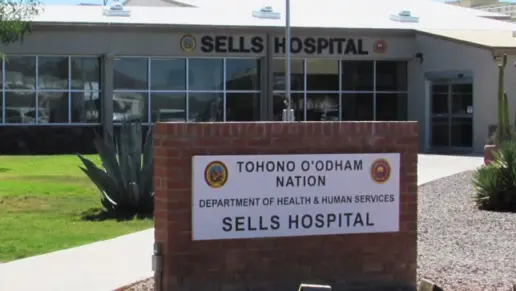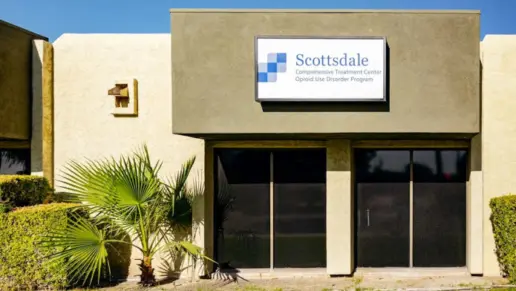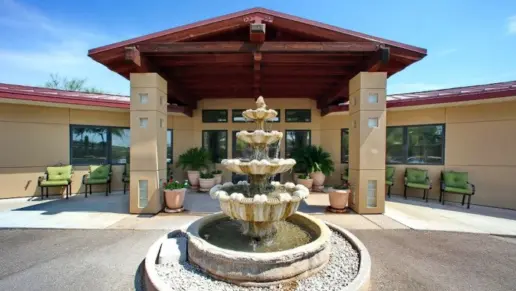This place is simply amazing. The staff was caring, kind and knowledgable. They got me in quickly and helped me all the way through from detox through inlatient and even php and iop, at the same place. The docs and nurses took their time with me and the techs could relate so ...
About Calvary Healing Center
Calvary Healing Center is a private substance abuse recovery center in Phoenix, Arizona. For over 60 years, they've helped clients find recovery through treatments focused on whole person healing. They serve adult clients.
Through trauma-informed practices, staff help clients better understand the root causes of their addictive behaviors and help them develop healthy coping strategies to maintain sobriety. They also provide a faith-based treatment track for religious or spiritual clients. A full continuum of care includes medically-monitored detox, inpatient treatment, a partial hospitalization program (PHP), an intensive outpatient program (IOP), outpatient treatment, and medication-assisted treatment.
For many clients, detox is a required first step before they can continue to a lower level of care. Medically monitored detox is the safest way for clients to remove abused substances from their system. Medical staff assist clients throughout the process.
Inpatient programs are for clients with severe symptoms. They live at the facility for the duration of treatment, where staff can monitor them closely and tend to their needs. Clients follow a daily structured schedule of individual and group therapy, holistic therapy, relapse-prevention training, and education groups.
PHP is a transitional level following completion of the inpatient program. Clients visit the facility five days per week for an intensive schedule of recovery activities, including 12-Step groups and speakers. In this program, clients return home at night.
IOP is the next level of care following PHP. Clients live at home but visit the facility on a frequent basis to participate in recovery activities similar to those in the inpatient program.
The standard outpatient program offers the lowest intensity level of care. It is very similar to IOP but meets less frequently, for shorter sessions, or both.
MAT is available at all treatment levels. During MAT, qualifying clients are prescribed medications to assist with their treatment.
Calvary Healing Center works with many major insurance plans, including Aetna, Banner Health, United Behavioral Health, Magellan, MultiPlan, and Humana. However, in network and out of network benefits can vary, so clients are encouraged to confirm coverage with their insurance provider before enrolling in treatment.
Latest Reviews
Gallery
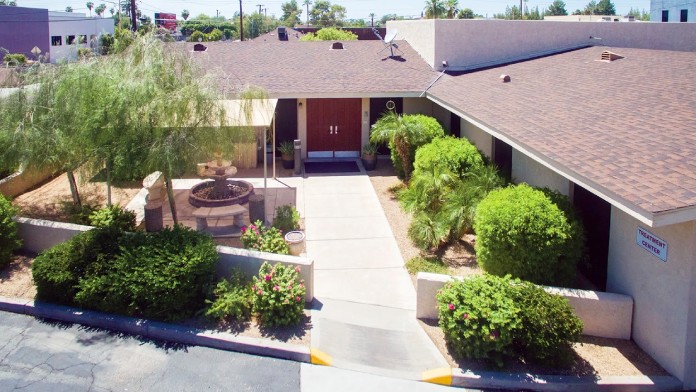
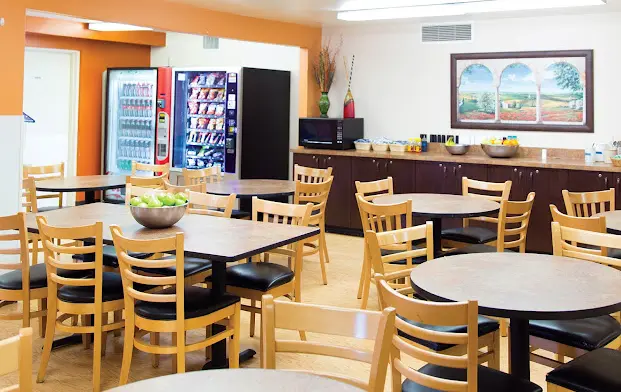
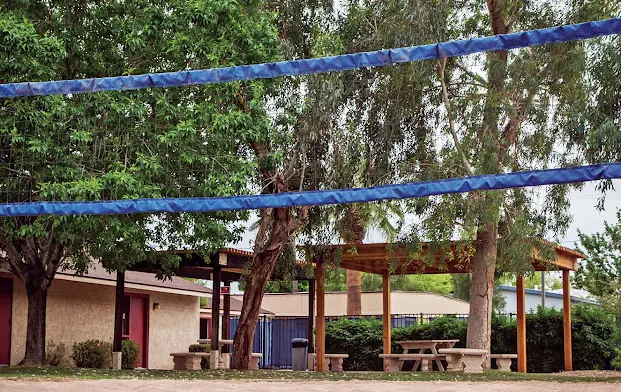
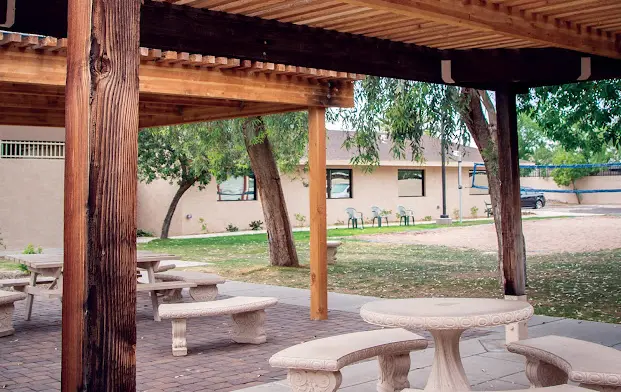
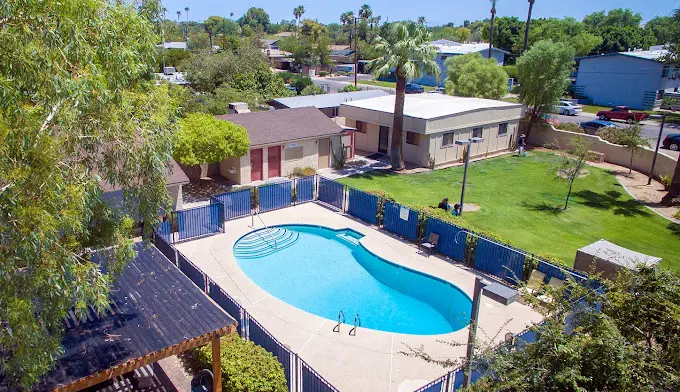
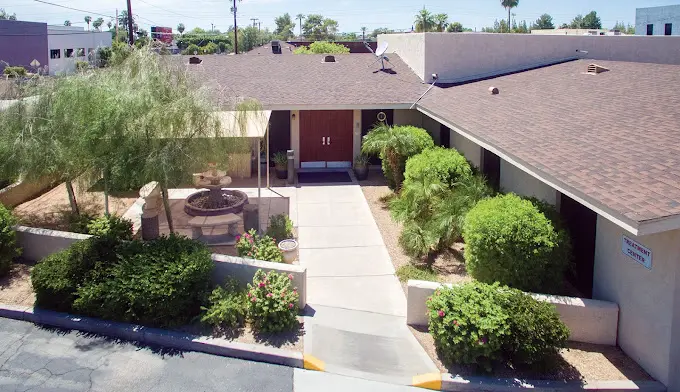
Location
Accepted Insurance





Other Forms of Payment
Private insurance refers to any kind of healthcare coverage that isn't from the state or federal government. This includes individual and family plans offered by an employer or purchased from the Insurance Marketplace. Every plan will have different requirements and out of pocket costs so be sure to get the full details before you start treatment.
Self-pay involves paying for treatment out of your own pocket. You can use savings or credit, get a personal loan, or receive help from family and friends to fund your treatment. If you don't have insurance or your insurance plan doesn't cover a specific program, self-pay can help ensure you still get the care you need.
Addiction Treatments
Levels of Care
Treatments
The goal of treatment for alcoholism is abstinence. Those with poor social support, poor motivation, or psychiatric disorders tend to relapse within a few years of treatment. For these people, success is measured by longer periods of abstinence, reduced use of alcohol, better health, and improved social functioning. Recovery and Maintenance are usually based on 12 step programs and AA meetings.
Drug rehab in Arizona is the process of treating individuals who are dependent on a particular addictive drug. Because addiction is complex, this treatment typically includes a variety of interventions that address the many physical and emotional issues involved.
Many of those suffering from addiction also suffer from mental or emotional illnesses like schizophrenia, bipolar disorder, depression, or anxiety disorders. Rehab and other substance abuse facilities treating those with a dual diagnosis or co-occurring disorder administer psychiatric treatment to address the person's mental health issue in addition to drug and alcohol rehabilitation.
A combined mental health and substance abuse rehab has the staff and resources available to handle individuals with both mental health and substance abuse issues. It can be challenging to determine where a specific symptom stems from (a mental health issue or an issue related to substance abuse), so mental health and substance abuse professionals are helpful in detangling symptoms and keeping treatment on track.
Opioid rehabs specialize in supporting those recovering from opioid addiction. They treat those suffering from addiction to illegal opioids like heroin, as well as prescription drugs like oxycodone. These centers typically combine both physical as well as mental and emotional support to help stop addiction. Physical support often includes medical detox and subsequent medical support (including medication), and mental support includes in-depth therapy to address the underlying causes of addiction.
Programs




Clinical Services
Cognitive Behavioral Therapy (CBT) is a therapy modality that focuses on the relationship between one's thoughts, feelings, and behaviors. It is used to establish and allow for healthy responses to thoughts and feelings (instead of unhealthy responses, like using drugs or alcohol). CBT has been proven effective for recovering addicts of all kinds, and is used to strengthen a patient's own self-awareness and ability to self-regulate. CBT allows individuals to monitor their own emotional state, become more adept at communicating with others, and manage stress without needing to engage in substance abuse.
Motivational Interviewing (MI) is a clinical approach to helping people with substance abuse issues and other conditions shift behavior in positive ways. It is more goal-oriented than traditional psychotherapy, as MI counselors directly attempt to get clients to consider making behavioral change (rather than wait for them to come to conclusions themselves). Its primary purpose is to resolve ambivalence and help clients become able to make healthy choices freely.
Trauma therapy addresses traumatic incidents from a client's past that are likely affecting their present-day experience. Trauma is often one of the primary triggers and potential causes of addiction, and can stem from child sexual abuse, domestic violence, having a parent with a mental illness, losing one or both parents at a young age, teenage or adult sexual assault, or any number of other factors. The purpose of trauma therapy is to allow a patient to process trauma and move through and past it, with the help of trained and compassionate mental health professionals.
Group therapy is any therapeutic work that happens in a group (not one-on-one). There are a number of different group therapy modalities, including support groups, experiential therapy, psycho-education, and more. Group therapy involves treatment as well as processing interaction between group members.
EMDR is a therapeutic modality originally developed to help process trauma. In an EMDR session, a patient is prompted to undergo eye movements that mimic those of REM sleep. This is accomplished by watching a therapist's finger move back and forth across, or following a bar of light. The goal is repetitive sets of eye movements that help the brain reprocess memory, which can significantly reduce the intensity of remembered traumatic incidents. Associated memories can heal simultaneously, leaving patients significantly calmer, more stable, and more emotionally relaxed.
Amenities
-
Residential Setting
-
Private Setting
Accreditations

The Commission on Accreditation of Rehabilitation Facilities (CARF) is a non-profit organization that specifically accredits rehab organizations. Founded in 1966, CARF's, mission is to help service providers like rehab facilities maintain high standards of care.
CARF Accreditation: Yes
Accreditation Number: 37841

State Licenses are permits issued by government agencies that allow rehab organizations to conduct business legally within a certain geographical area. Typically, the kind of program a rehab facility offers, along with its physical location, determines which licenses are required to operate legally.
State License: Arizona
License Number: IFB6551
Contact Information
720 East Montebello Avenue
Phoenix, AZ 85014











